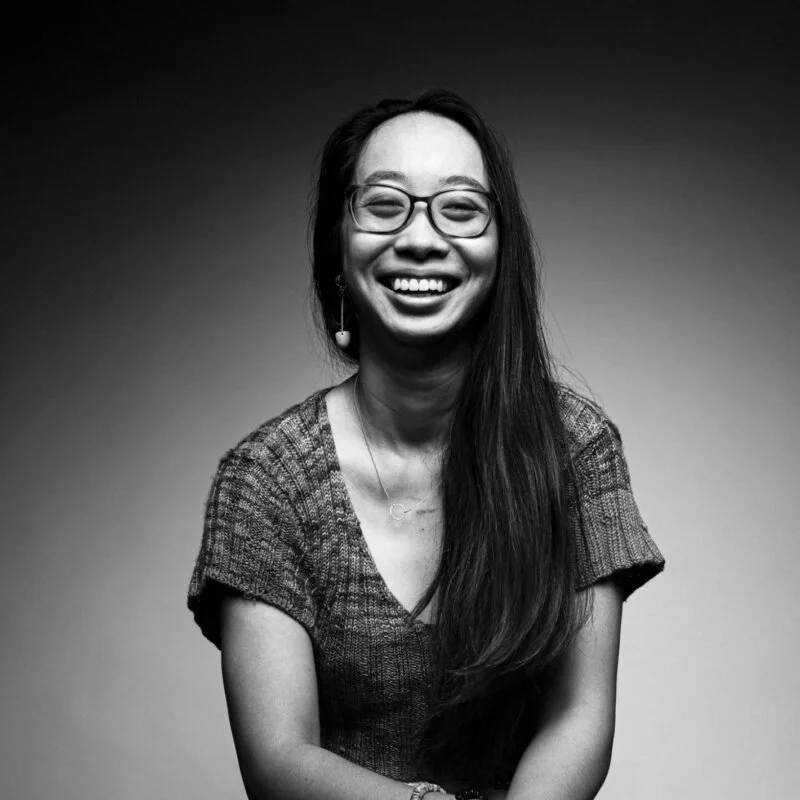“I don’t have time for history narrated as a sequence of factual events. It’s a view that favours the names of leaders and specific places, and doesn’t convey the reality for ordinary people.”
Read More“Camp is really something that one cannot pursue as a purpose. It is something that comes naturally as once one wants to be camp, the characteristic of camp is no longer there.”
Read More“The way refugees are often depicted in news and media don’t usually show the humanity, other than the suffering. So I wanted to show refugees as people like you and I, people who have had to go through a really devastating event.”
Read MoreFormer Play School presenter and founder of Joy House productions, Joy Hopwood brings us The Gift that Gives, an Asian Australian romantic comedy that begins in a bookshop.
Read More4A staff and gallery assistants speak with Monique Moate on the importance of accessibility in the arts.
Read MoreFi Peel, Mây Trần, Phoebe Lupton and Eugenie Lee speak with Monique Moate about the intersection of disability and cultural marginalisation, and their endeavours to foster arts accessibility.
Read More“[…] solidarity and movement-building happens [on many levels]: at a policy level, in academic spaces, in kitchens, over dim sum and kimchi, on the streets and in intimate spaces of care.”
Read More“I think that people often create works that don't acknowledge the many bodies that have touched a project in smaller or larger ways, art structures and systems push for just one or two names to be acknowledged, and I don't think it's either fair or accurate.”
Read More“People who are seen as ‘victims’ can often have really disempowering experiences with the media, which is good to keep in mind to avoid replicating that experience. Communication and involvement at all stages, including concept development, felt really important.”
Read More“Writing fiction takes an extraordinary amount of discipline and focus, but there’s nothing more satisfying than seeing a manuscript develop over time.”
Read More“When I first started writing, I often unconsciously conflated being vulnerable with revealing everything about myself, and one of the most important things I’ve learned through this journey is that I don’t have to do that to get people to listen or care.”
Read More“By responding and engaging you can help redirect energies from destructive to constructive ends. The work will always be ongoing.”
Read More“I was interested in the ways that Chinese women in Aotearoa were subordinated by these white settler tropes, and, at the same time, by traditional expectations inside the patriarchal Chinese home, and how the former reinforced and ossified the latter.”
Read More“I always think that’s a good sign, if you can make yourself laugh with your own writing. It’s not from self-satisfaction—it’s in spite of the disdain you develop for something you work on over and over again.”
Read More“I was lucky to grow up with a worldly outlook, thinking about movement beyond borders—this is the privilege of the immigrant child I feel, always maintaining a connection with extended family and ancestral locations. There is always a curiosity to discover what’s out there beyond the home, and as the internet strengthens its presence to connect people all over the world, this has become much stronger.”
Read More“One of the most obvious assumptions about identity’s role in literature is that cultural identity is set in stone, and […] I have sought to unravel that assumption by portraying identity as something that can evolve and be determined by individual choices.”
Read More“[Language] can open up and spread out our memories and events, so that we can see it happening in front of our very eyes; we can see what was wrong, what was right and what can make things better.”
Read More“I think it’s important to not do anything that takes itself too seriously, but not do it half-assed too.”
Read More“I hope people learn that the injustices that the Nadesalingams faced in Sri Lanka, as well as the injustices they faced in their claim for safety in Australia, are the result of history, international relations, and political expediency colliding.”
Read More“There are so many things we’ve had to pick up [from scratch], whether that was learning how to apply for grants, choosing paper stocks, understanding how distribution works, or getting over our fear of contacting our favourite high-profile writers.”
Read More



















